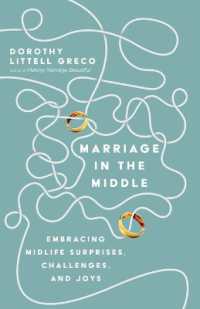Full Description
Pia Tafdrup is one of Denmark's leading poets, the winner of the Nordic Prize - Scandinavia's most prestigious literary award - for her collection Queen's Gate, published in English by Bloodaxe in 2001. This new translation of her work combines two more recent collections, The Whales in Paris and Tarkovsky's Horses, which comprise the first and second parts of a quartet written over ten years: the third and fourth parts are The Migrant Bird's Compass and Salamander Sun (published in English by Bloodaxe in 2015 as Salamander Sun and other poems).
The poems of The Whales in Paris span the moment of conception to eternity. Life is seen as a confrontation with what is bigger than oneself: love, desire and death, primordial forces that are present even in our very modern civilisation. Those great forces of existence form the territory of The Whales in Paris: above all, desire and death, illuminated with motifs from childhood, the relation to parents, family, mythical figures from the Bible. Time, dreams and meditation also play their part.
Pia Tafdrup writes: 'Tarkovsky's Horses is about loss in a double sense. The themes of the poems are my father's increasing forgetfulness, his loss of his faculties and then my loss of a father. The book is a poetic portrayal of the course of an illness for which science has few words - my father begins to suffer from dementia, and then he has to go into a nursing home, where he dies. Disintegration of identity and its inexorable progress are followed through every phase, in a concrete and naked form that makes use of the myth of Orpheus and Eurydice. The poems about a father who forgets more and more are set in a border landscape which is also not without its comical aspects. The poems narrate the drama of what it is to be a human being.'








